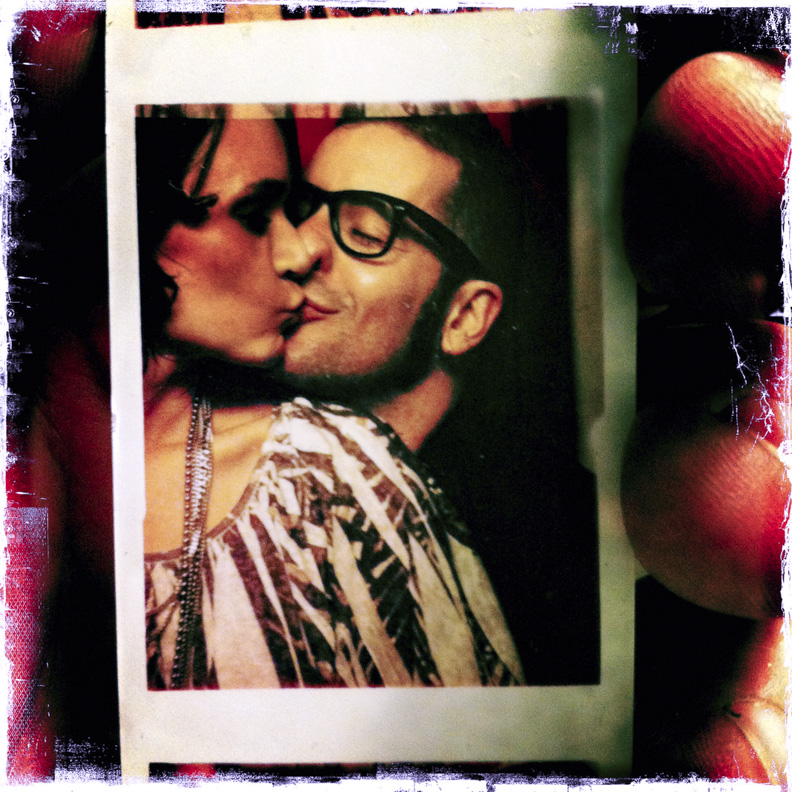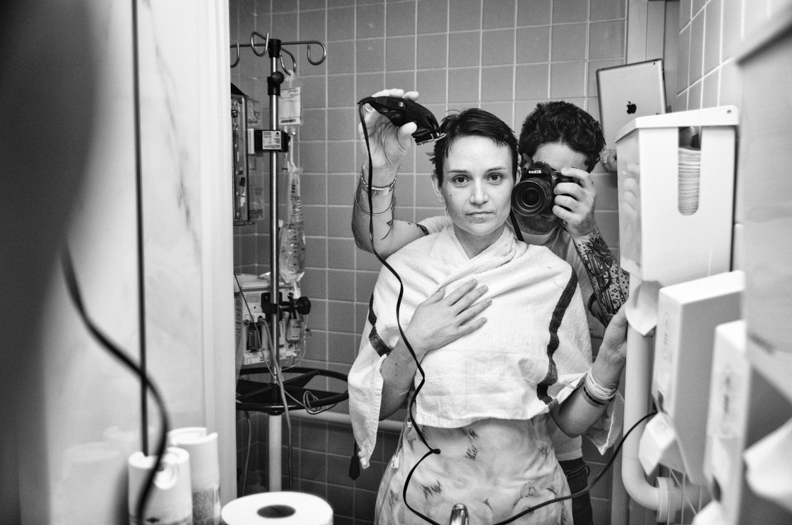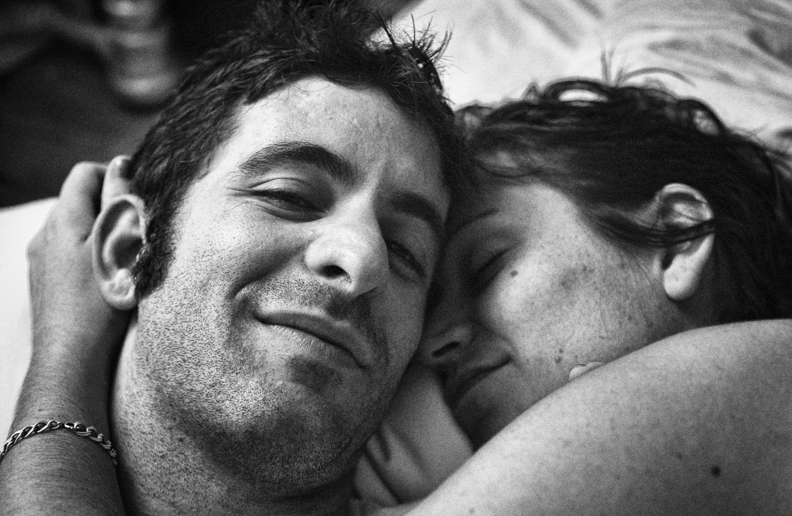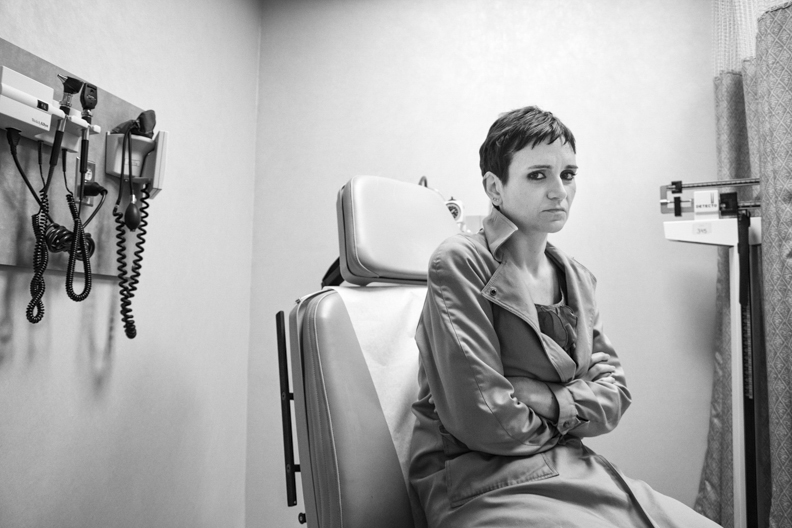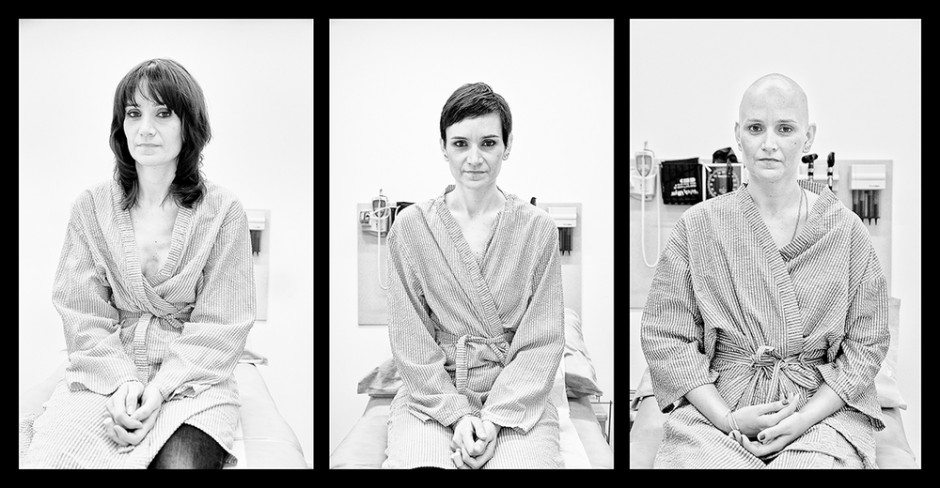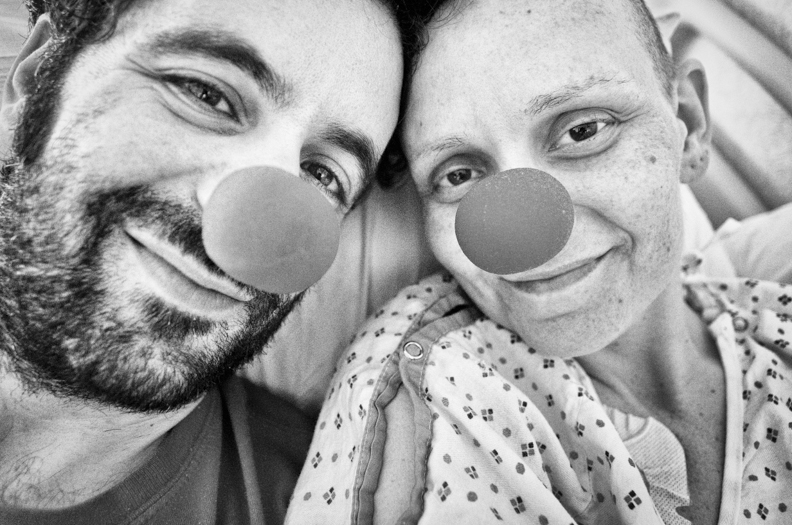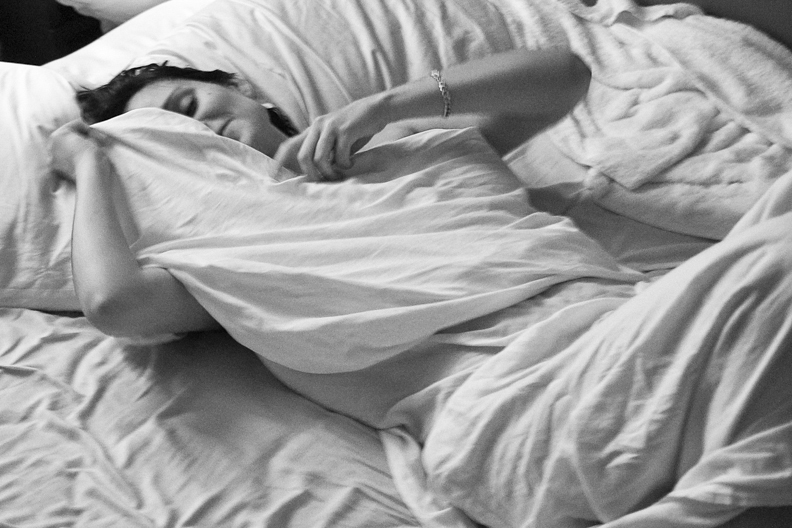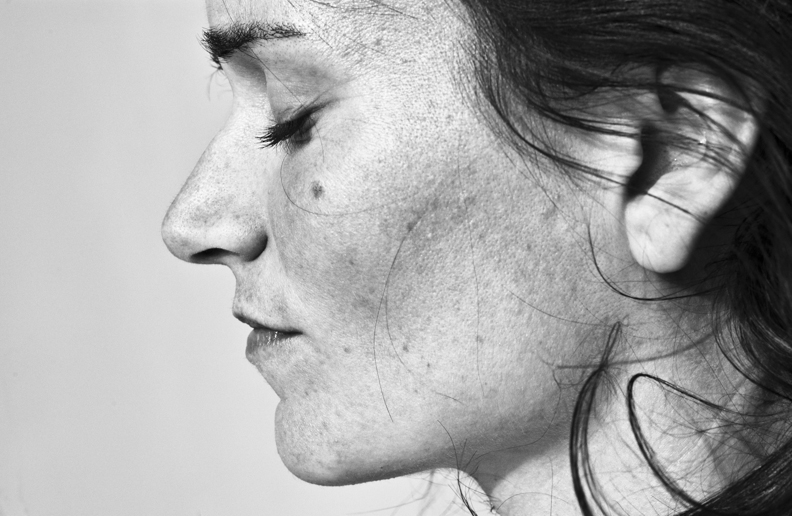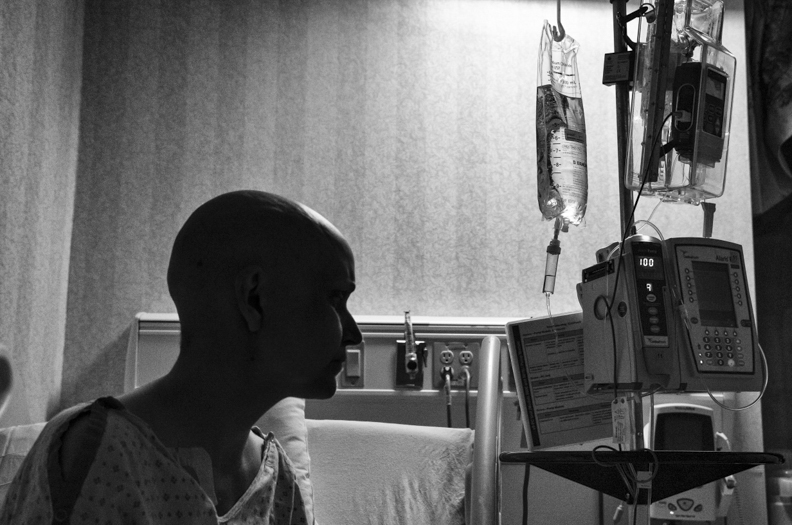WHEN JEN AND I MET, we were in our 30s. We had both been through enough in life relationship-wise, but also with other challenges. Jen was a widow. She was married before but at the age of 25 became a widow. From talking to people who knew Jen growing up, she was always a very optimistic and loving person. But I think that experience had a huge impact on Jen and how she lived her life, her ideas about embracing life and following her dreams.
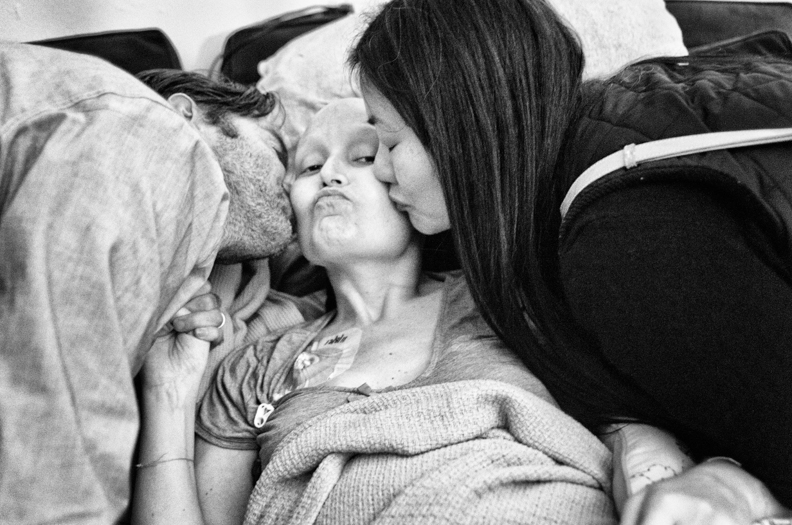

What We Must Understand About Our Relationships Before It's Too Late
I was at a point in my life when I was trying to figure out who I was and what my purpose was. So as far as our relationship there was just this unspoken way about it that we didn’t want to make life difficult for each other. Life was hard enough. When you leave home in the morning and you go out in the world, life is kind of beating on you. You just put a helmet on and deal with these things. So we thought that when you come home, no helmets are allowed. Why make life difficult for each other?
We always saw our relationship as just that: a Relationship. It was just Jen and me, and we were together as a team. So I think having been through our 20s and having the experiences that we had — it really had a huge impact on how we treated each other.
When I think back now, I was just all in. I had no concern that Jen was going to hurt me. I completely trusted her. And it was the same with Jen. We just…loved each other. And we knew that if we had each other we could make it through whatever challenges life would throw our way.
OBVIOUSLY WE HAD NO IDEA what was coming at us. But you know, when you say “I do,” when you ask someone if they want to be with you forever, then that’s what that means. I’m not saying things don’t change over time, and I’m not trying to judge people at all. Some people get divorced and that is what it is. Things happen in life. But when I hear people say things like, “Oh we gave it our best seven years,” or something like that, I think like, “Wow, That’s it? What happened in those seven years that made you want to quit?”
Again, I’m not trying to judge. I don’t know what’s going on in other people’s shoes. But I think if you’re going to ask someone to marry you, you gotta be all in. Because you don’t know what’s gonna happen. Life is hard with financial struggles and jobs and families, and then you add illness to that, it’s serious, you know? You can’t just sort of get married. You can’t go into it knowing, “well if things don’t work out I’ll just get divorced.” To me that’s not the way to do it. If you’re gonna commit your life to somebody, then commit your life. Do it because you love that person. For the good times and the bad.
It’s not like everything was perfect for Jennifer and I. We’d argue from time to time. But the thing was, we didn’t let those arguments take us over. We would talk about them afterwards. We wouldn’t hold grudges. We’d let each other calm down and then say, “Hey, I’m sorry I got upset, but this is why.” We were committed to making our relationship work. And that takes work. It takes effort. It takes dedication, you know? It’s not easy. Those first months or whatever — that early time you’re with someone — it’s the honeymoon phase, and maybe you look past certain things. But relationships take effort. It’s not a walk in the park.
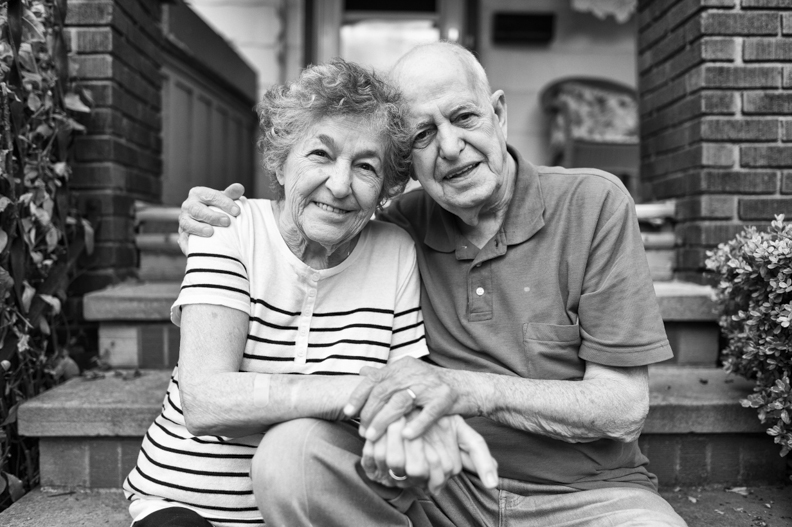
Angelo’s mother and father: Twenty years ago my dad was diagnosed with lung cancer. I was 19 years old and did not yet realize how little I knew about life. Ten years ago my mom was diagnosed with breast cancer. I was starting to realize how little I knew about Everything but I still didn’t have a clue about how precious life and Love are. Five and a half years ago Jennifer was diagnosed with breast cancer. Now I know. Along with Jennifer’s Love, watching my parents take care of each other is the greatest gift ever given to me.
BOTH OF OUR PARENTS were married for a long time. Jen’s parents were married 50-something years and my parents were married 63 years. And we were fortunate to see parents who stuck it out during difficult times. Both my parents are cancer survivors. My parents raised 11 kids. We were fortunate to have role models in our parents who taught us the value of being good people, of being honest. And it wasn’t that they taught us in their words; it was their actions that showed us.
I’m the youngest of 11 kids, so I’ve been fortunate to have older brothers and sisters who’ve shared their experiences with me. And even just watching what they’ve gone through has really done a lot to educate and shape my thinking, because I’ve seen the ups and downs they went through and thought, what can I learn from that?
And we were fortunate not just in our family, but in our friends. I like to think that we surrounded ourselves with good people, honest people who were always there to help, who were honest with us. There’s this old Italian saying that roughly translates to: “Your friends will make you laugh but your family will make you cry.” That doesn’t just mean blood family; those are the people you bring into your life who can say, “look you might not want to hear this but you need to hear this because I care about you.” They’re not just the people who say, “Alright this’ll be fun; let’s party.”
So we were fortunate to have those role models. And we wanted that. We were best friends. We got along well, so it was easy to deal with. We respected each other. It was a lot of things. It wasn’t like when I was in my 20s. I wasn’t in a place in my life where I would think this way.
WHEN JENNIFER AND I MET, my time was split between music and photography. I was playing in a band who had recently signed a record deal, so we were on and off the road. Jen moved to Manhattan about a month after we met, and we weren’t dating at the time but we kept in touch. And we would talk. And when I’d go to play shows in New York I’d always make time to see Jen. And we got to be friends and ultimately I told her how I felt.
I was crazy about her. I didn’t think she would date me though. I didn’t really know what I was doing, and she had just taken a really good job in Manhattan. She was hardworking, intelligent, a dependable person, and I felt like I was just all over the map. But I always thought of Jen, constantly; whenever I was on the road I would send her messages. Everything made me think of her. But after I met Jen, even before we started dating, I just had this feeling. She inspired me. She lived by her actions. You didn’t know how Jen was because she told you; you knew how she was because of what she did.
And that inspired me to get my life together. To start thinking in a more responsible way, to think about who I was and what kind of life I was leading, what kind of friend I was. She’s probably the person I’ve had the most admiration for as far as her friendships. She just had so many great friends. And not just like, “oh here’s my great friend!” She was very motherly and she looked out for people. So when I met Jennifer I started thinking: What kind of friend am I to other people? What kind of family member am I? I was just inspired by her to live a life that I’d be proud of some day.
SO I WAS ON AND OFF THE ROAD or I was in Cleveland. And Jen was in Manhattan. But long distance at first was great because we spent a lot of time on the phone and we had to learn how to communicate. We had to learn how to listen to each other. We couldn’t just sit on the couch watching television, which isn’t a bad thing either but it was…intense. We were carefree too, but we talked. And then when we were together it was like, “okay we have 72 or 96 hours together, let’s make the most of it.” And that’s how our relationship started: communication and not wasting time.
So after about six months of that, I left the band I was with and I was thinking, why am I not in New York? I’d always wanted to live there, and Jen was there, so it made perfect sense.
In October of 2006, I sold most everything I owned except for some cameras and some drums and clothes. I bought an engagement ring, and flew to Manhattan. On the night I arrived we had dinner at our favorite restaurant, this place on the Lower East Side called Frank’s — a great Italian spot. After dinner I proposed. I was like: I knew. Let’s not even waste a minute. We were in love, and I knew she was the woman I was going to grow old with.
Jen said yes, which was great, and the following September we were married in Central Park. It was September 1st, 2007. Five months later, February 2008, Jen was diagnosed with cancer.
She was always aware of her health, her body, always went for checkups if something felt strange; she didn’t just sit around. She had a history of cysts and different scares growing up. In January of 2008 I was back in Ohio visiting my family, and Jen had an appointment with her general practitioner. She called me and she was freaked out. She said the general practitioner felt something strange and she should have a mammogram, and Jen said, “I know it’s breast cancer.”
AT THIS POINT we’d only been married a couple of months, and I was like hold on. I had no idea, no reason to think, “okay, it’s breast cancer.” So I said, “Hold on hon, those are valid feelings, and I can’t imagine having someone say ‘there’s something in your body, let’s go get this test,’…and I can try to understand to the best of my ability that you’re scared out of your mind. But let’s wait. Do your best not to freak out yet. Let’s wait until you have the mammogram. Maybe it’s just a cyst like you’ve had in the past.”
I was just trying to comfort her and be logical, but at the same time I thought, Jen isn’t really one to let these things get to her, so I was like, should I be scared too? What’s going on? And so I said, “I’ll be home tomorrow. We’ll figure this out.”
I got home the next day, and I just remember this feeling. Jen was usually a composed person, and I remember thinking she just seemed a little agitated. I was trying to stay calm and steady for her even though I was thinking that this isn’t normal.
She went for the mammogram and not long after the doctors called and they told her they believed it was breast cancer. So then she called me, and I’ll never forget that moment. I remember the sound of Jennifer’s voice on the phone saying, “I have breast cancer.”
I WAS NUMB IMMEDIATELY. That numb feeling has never fully gone away. It’s intensified since then. I said, “Okay, get in the cab and go home. I’ll leave work and I’ll meet you there.” When I got home Jen was already there, and I remember the look in her eyes and thinking, “she’s so scared right now.” And thinking back, I wonder if she saw how scared I was. To see her so scared — she was just such a strong, composed person that to see that look in her eyes — it was like when Jen was alarmed that was cause for alarm.
But then I said okay — I went into the mode of husband, of partner, of spouse. I thought, “I need to protect her, and how can I take care of her?” And so I remember saying, “You know what babe, we’re gonna make it through this because we have each other.”
We both believed that. We had no idea what was about to happen. How could we? Why would we? So pretty much from that point on, life kicked up to about 150mph. We were thrown into this world of cancer that played by no rules and had no sympathy and no roadmap. Everything changes. And you couldn’t put logic to these changes. It was cancer. It was treatment for cancer. Emotionally, physically, everything, we were pushed to our limit. I think in those times you realize you can take more than you ever think you can, you know? It’s like you never really know what you’re capable of until you have to find energy, you have to find strength. You have to perform in a way that you never expected to.
I ALWAYS PHOTOGRAPHED JEN. But during this time I wasn’t really thinking about photography. For this first period of treatment, our family and friends were incredible. Our support group was strong and amazing. They sent cards, they sent dinner, they visited when Jen was up for it. They held fundraisers to help us with finances. I don’t know how we could’ve made it through the time without them.
We got through treatment and tried to put our life back together, which was really difficult because everything we thought we knew had been leveled. We felt very different from most everyone else in our life.
We did kind of notice that at the time people would start to say things like, “Hey, what are you guys still upset about? Life’s good. You don’t have cancer anymore.” Which was true. But the thing was that mortality had a totally different meaning, you know? Cancer comes back. I mean here we were in our 30s having been married less than a year, facing cancer treatments, and mortality, and thinking about our life in a very different way — life had a different meaning. We didn’t really know what it was, but we knew everything was different. The things that used to bother us didn’t carry any weight anymore. It was important to make each other laugh and smile. To help each other when you fall. To tell people in our life that we love them.
SO WE STARTED TO PUT OUR LIFE back together. We were very close, and we grew even closer because of this. It wasn’t until Jen’s cancer metastasized in April of 2010 that our biggest fear became our reality. And it was as we went back into treatment that we began to notice most people didn’t seem to understand how serious Jen’s illness had become. And our support group was kind of fading away, which was difficult. We were in Manhattan, and most of our family and friends were in Cleveland, and we needed their help. We didn’t expect them to have the answers to anything, but we needed them to be there.
People would say things like, “You just have to be positive,” or, “You can’t think bad thoughts.” And we were very positive. But the thing was, this was beyond that. It was metastatic cancer. It was very serious. So that’s when I started making photographs. I thought that if our friends and family saw what we were facing, maybe they’d have a better idea of what we were going through. And Jennifer was very open about sharing her experience with breast cancer, because when she was first diagnosed in 2008 she would do research, and she found that things were very clinical. Things on the internet were very sterile. She wanted to hear what women with breast cancer were going through.
JEN HAD ATTENDED support groups at Memorial Sloan-Kettering Cancer where we received treatment. And it was very helpful to Jen to talk to other women about what they were going through. They could talk about the kinds of treatments they had been on, and the side effects. What to expect and what was cause for alarm. Even though I was Jen’s husband and caregiver, there was a point where I couldn’t understand things because I had never been through breast cancer. And these women could speak in a language, they could talk about these things in a way that I just didn’t understand.
Jen had a blog (My Life With Breast Cancer). Her hope was that if she shared what she was going through, then women who might be looking for similar information could read about it. Jen just thought it was important to share her experience, because if we don’t share our experience, how can we all learn?
And so the photographs kind of came natural. It was just part of what we did sharing our experience. It would help to communicate. At first these photographs were just for family and friends. There were no intentions for all these things that are happening. I didn’t think about making a book or having ambitions. It was really out of survival and communication to our family and friends.
After a while, a good friend of mine suggested I share the photos on the internet, and with Jen’s permission I started putting the photographs on my blog. And when I did that the response was really incredible. We started to get emails from other women who had breast cancer. They were inspired by Jen’s grace and her courage. A woman contacted us and said because of Jennifer she faced her fears and scheduled a mammogram. And that was pretty heavy for us. That’s when we started thinking that our story could help other people. It was kind of a catalyst for the things that today are all happening. It was just the idea that something we were going through could make a positive impact on the world and help people understand a little about breast cancer.
ALL OF THESE THINGS that are happening are very humbling to me. Like I said, I had no intention of any of this. It was just survival. But I’m very grateful that Jennifer let me make these photographs during the most challenging time of our life. You know, she trusted me. She knew that before I was making any photographs I was taking care of her. And she knew that I wasn’t going to do anything that would misrepresent what we experienced. In many ways I feel that Jennifer gave these photographs to me. She was very much a part of all of it. The trust and the openness to share this experience. I’m still amazed that Jennifer was strong enough to allow me to do that.
Being able to share our experience with medical students and doctors and nurses is an opportunity to plant seeds that will hopefully affect how people are treated in the medical community in the future. Because people before us did things. Say someone took a trial drug, or whatever studies patients participated in so that doctors would have a better understanding of how a certain treatment would work. Well, if people hadn’t done that, then that would’ve affected how Jen’s treatment would’ve been carried out. So we wanted to keep that circle going. We wanted to give something back.
And so going and talking with medical schools and hospitals — it was very interesting because we received incredible treatment. Sloan-Kettering is just an amazing institution. They cover so many bases. So many things are thought of so far in advance. Jennifer and I often talked about that. About how fortunate we were that we could have that kind of treatment. And to be in the company of people who were just in the forefront of cancer research, we were often humbled.
But to go and speak at these schools, I think that it carries a different message than say a 60- or 70-year-old doctor who is lecturing in a more scientific way. That’s important as well, but many of these young students have commented that they could easily see themselves in our positions. I think it has a different impact. I think it makes it a little more real to people. These aren’t just numbers and tests. This is real life cancer. This is the day to day. It could happen to anyone.
AND SO I THINK OUR STORY is just very human. When we were in the hospital, we got to know the different staff, the nurses. And we all got along well. Jennifer’s personality was one where you just liked her, you know? It was easy to like Jen. And so I think that a lot of these nurses felt like, “wow, we could easily be friends if it wasn’t for this hospital setting.” It was very close to being peers. So I think our story connects with people in that way.
What I hope is that it makes people stop for a minute and think about the life they’re living. Their relationships and how they treat people. That their spouses will stop for a minute and hug their wife or husband or whatever it is. And not take anything for granted. I mean I wouldn’t wish this on anyone. But the fact is, it’s happening. It’s happening to people who are younger than Jen and I were. And older. Everyone. So I just hope that by sharing our story with the medical side, it can plant seeds.
